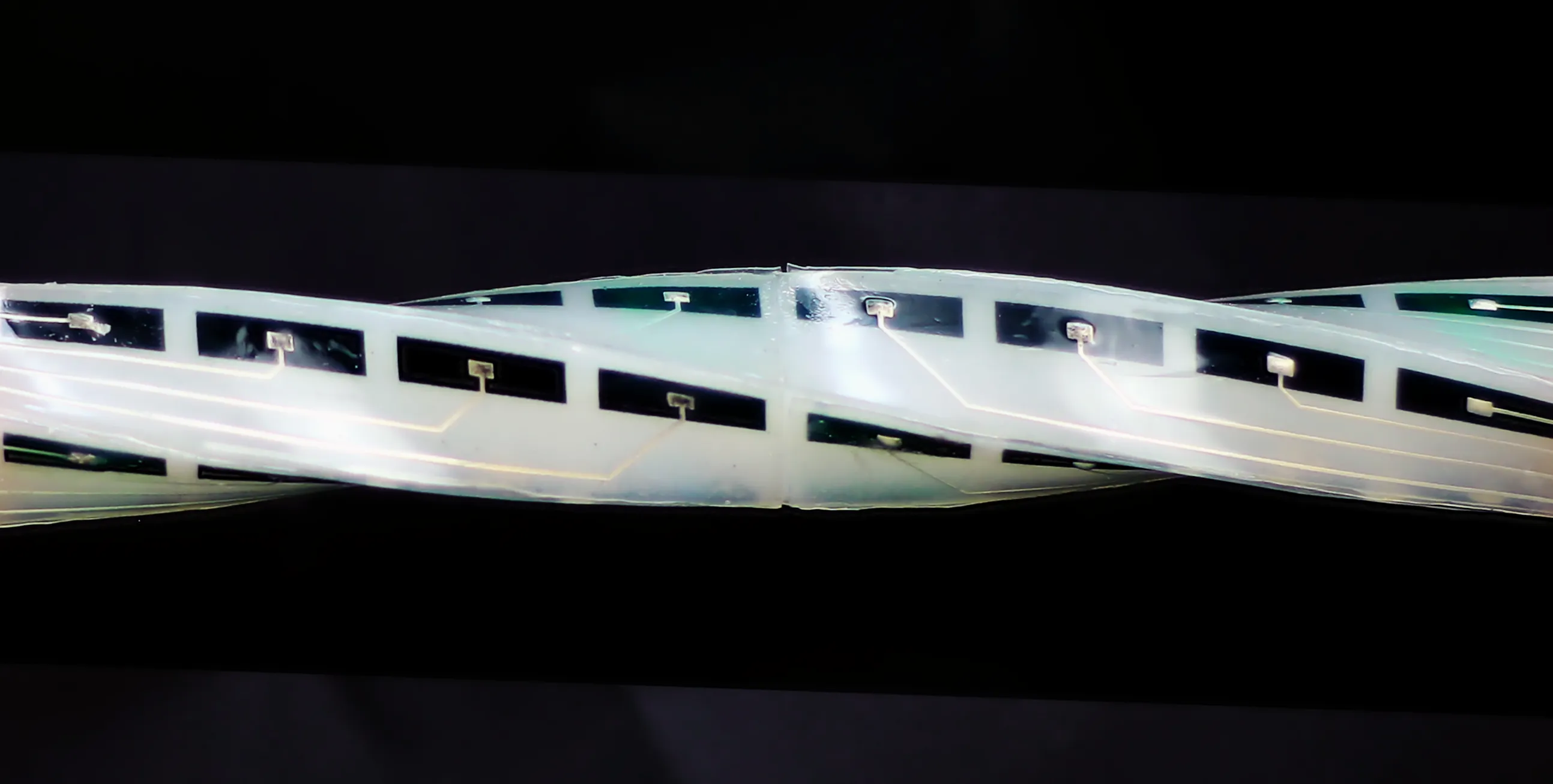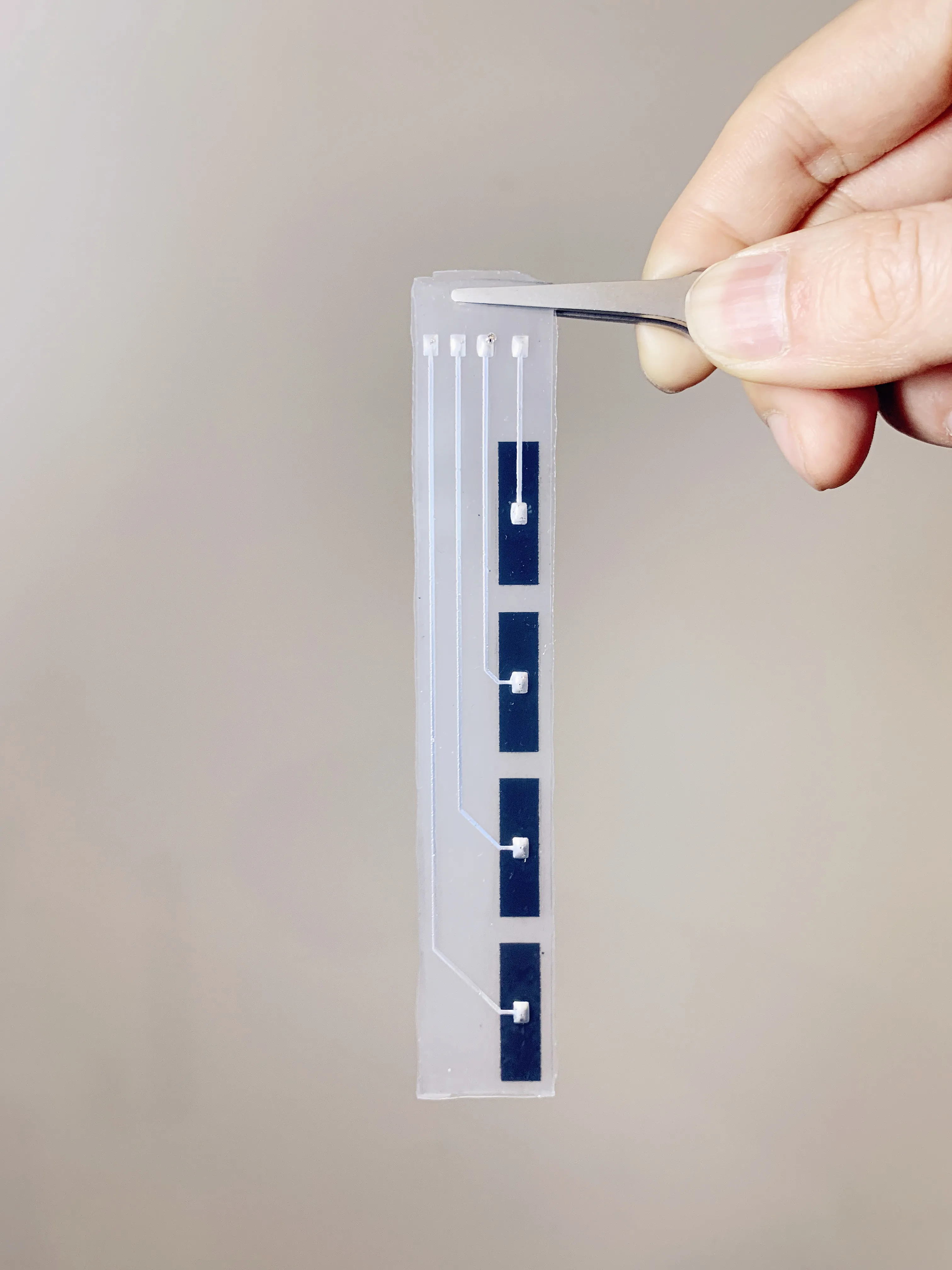
The creation of stretchable e-skin by Edinburgh researchers gives soft robots for the first time a level of physical self-awareness similar to that of people and animals.
The technology could aid breakthroughs in soft robotics by enabling devices to detect precisely their movement in the most sensitive of surroundings, experts say.
Pliable robots
Soft robots – which are made of pliable materials rather than metal or hard plastic – with e-skin could have a range of applications, including surgical tools, prosthetics and devices to explore hazardous environments.
Unlike traditional rigid robots, which have a set range of movements, soft robots are highly flexible.

This poses a major challenge to developing the sensing systems that are essential for robots to carry out precise tasks and interact safely with people and the environment, researchers say.
Precise sensing
Without e-skin, it is hard for soft robots to understand their own motion and shape, and how these qualities interact with their environment.
The Edinburgh team, working with the University’s commercialisation service, Edinburgh Innovations, has developed a technology that overcomes this problem and provides soft robots with highly accurate, real-time sensing abilities.
Flexible material
Researchers created a flexible e-skin made of a thin layer of silicone embedded with wires and sensitive detectors.
Using the e-skin – which is 1mm thick – in combination with artificial intelligence, researchers were able to give soft robots the ability to rapidly sense their motions and deformations with millimetre accuracy in three dimensions, in real time.
Complex movements
The team tested their e-skin by fitting it to a soft robot arm. They found that the technology was able to sense a range of complex bending, stretching and twisting movements across every part of the device.

